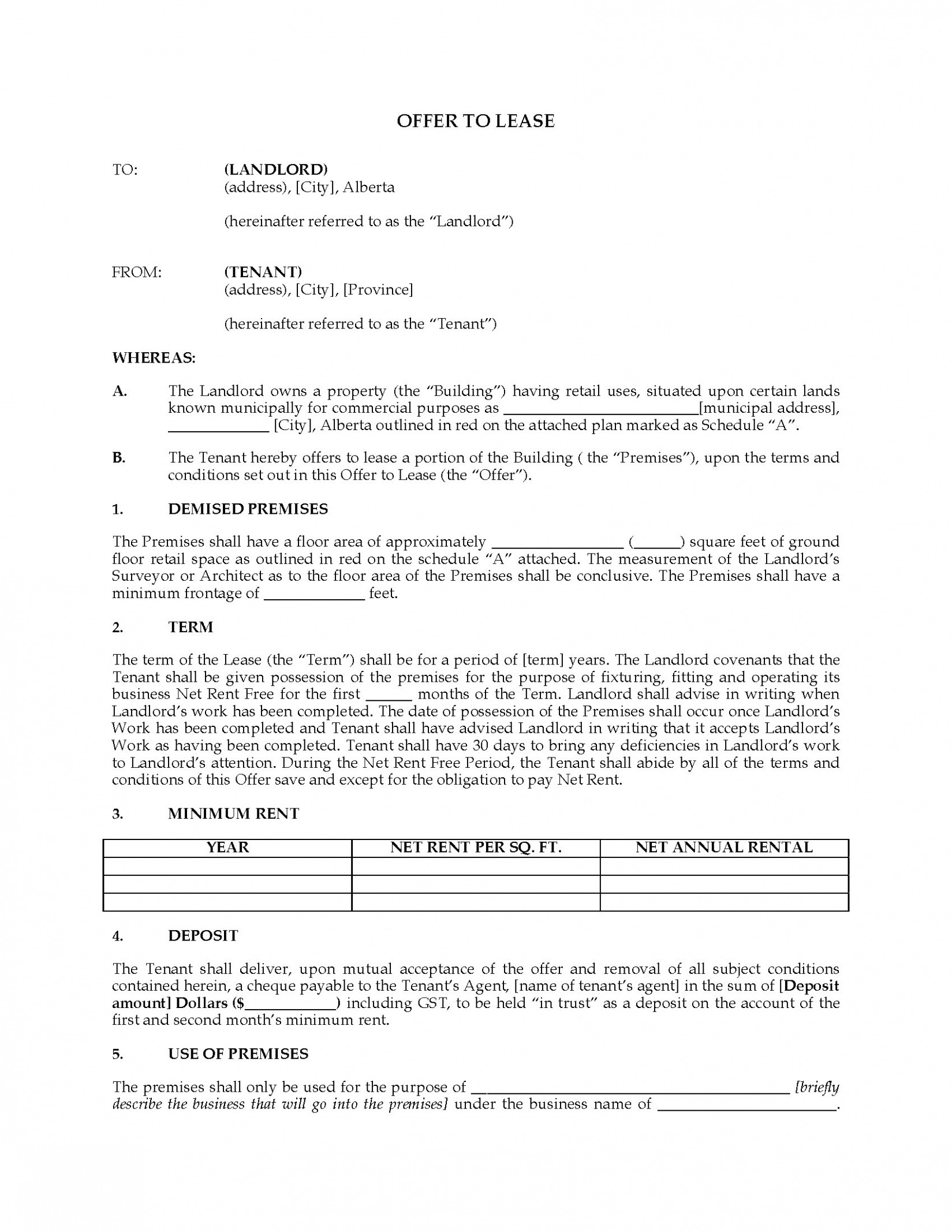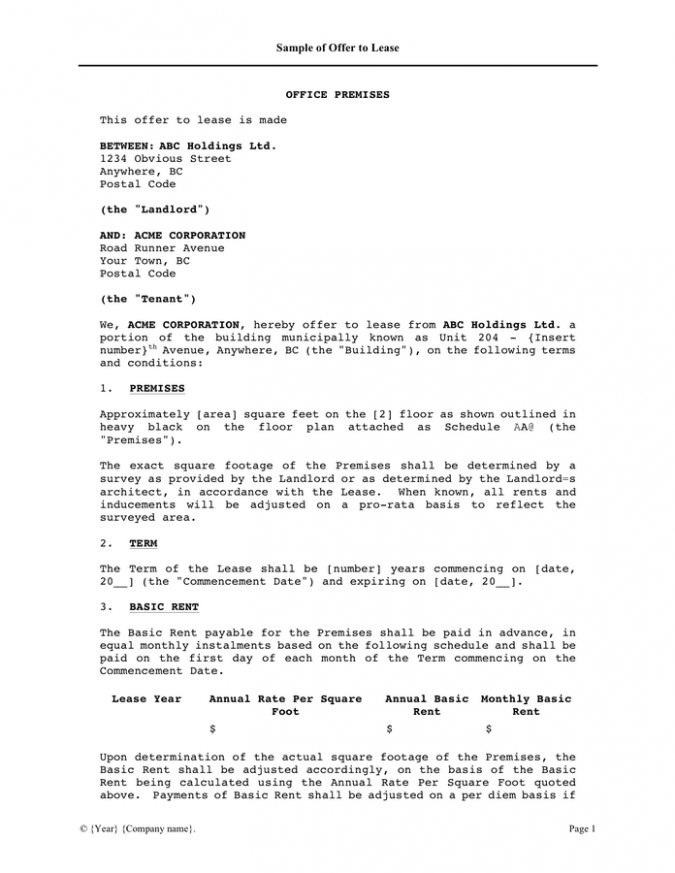Offer To Lease Commercial Property Template Taxpayers experiencing tax obligation financial debt problems rarely compare the internal revenue service offer in compromise with the Phase 13 insolvency. Often, the Phase 13 will certainly supply a extra particular solution for the taxpayer to settle tax obligation debt. This short article checks out the family member benefits of both the offer in compromise and also Chapter 13.

An deal in compromise might be the most promoted tax remedy. You can not listen to radio or view TV without being bombarded by advertisements to settle your tax debt. Typically the advertisements declare that the IRS has announced that compassion in the collection of the tax obligation financial obligation exists for a minimal time. The unfortunate fact is that the leniency news by the internal revenue service was typically for various other trouble area, such as tax obligation sanctuaries. The internal revenue service rejects about 85 percent of all offers in compromise submitted as a result of question as to collectibility. Offers in concession are normally filed because the taxpayer thinks the tax obligation financial obligation can not be paid, Uncertainty regarding Collectibility is one of the most typical kind of offer in concession. Other sorts of offers in compromise are outside the range of this write-up.
The benefit of the deal in concession is that the tax responsibilities, including the related penalties and also interest, are reduced to the quantity the IRS and also the taxpayer concur can be paid. Both parties must consent to the terms of the offer in compromise. The offer in concession is a agreement between the IRS and also the taxpayer. The terms of the contract can be enforced versus the taxpayer as well as the IRS.

Acceptance of the deal in compromise occurs when the internal revenue service thinks that the offer goes to the very least as much as could be accumulated by the IRS over the one decade life of the law of constraints. The internal revenue service will decline an deal that is for a minimal amount than it can otherwise accumulate.
The IRS makes use of a consistent collection of monetary standards that are not versatile in both the evaluation of the quantity paid monthly in an installment contract and in an deal in concession. These standards restrict the expenditures for living that the taxpayer can claim are essential for living. The requirements include food, housing as well as utilities, transportation, and also expense wellness expense. The standards may trigger radical problems for a taxpayer with a moderately greater standard of life. Overhead are not influenced by the requirements.
The analysis of the minimal deal in concession that will certainly make the deal processable is the equity in the taxpayer’s possessions plus the amount that could be paid in an installation contract over a specified time period. The duration of the future regular monthly settlements taken into consideration by the internal revenue service relies on just how the deal will be paid by the taxpayer. The internal revenue service desires 48 months of monthly settlement if the taxpayer provides a lump sum. The internal revenue service wants 60 months of month-to-month payment if the deal is to be paid in a short term agreement of two years or less. Nevertheless, the IRS will certainly consider factual issues such as retirement as well as health of the taxpayer in shortening the period of the multiplier.



